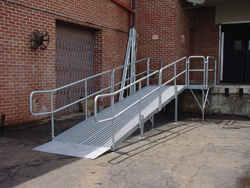Americans with Disabilities Act Accommodations
 The Americans with Disabilities Act (ADA) was signed into law in an effort to break down barriers to those with a disability in terms of transportation, employment, and other public accommodations. Without the law and its interpretations, the economy would sustain massive costs educating, rehabilitating, and employing these individuals with a disability.
The Americans with Disabilities Act (ADA) was signed into law in an effort to break down barriers to those with a disability in terms of transportation, employment, and other public accommodations. Without the law and its interpretations, the economy would sustain massive costs educating, rehabilitating, and employing these individuals with a disability.
Per a mandate within the ADA law, employers should make any ‘reasonable accommodation’ for a job or work site to allow and enable a qualified employee to carry out their responsibilities. This means modifying an existing facility, changing work schedules, purchasing or modifying equipment, hiring an interpreter, creating disability-specific training programs, and more.
Cosmetically, employers can build or modify an existing entrance or exit to ensure the employees safety. Desks or counters can be adjusted to accommodate a wheelchair, or door thresholds can be placed to smooth the transition over a sill for those people using a walker or cane.
Keep in mind, an employer is only required to act when a qualified person requests a modification and on a per case basis only, meaning each person’s accommodations may be different.
You can read more about reasonable accommodations by navigating to the ADA’s website



